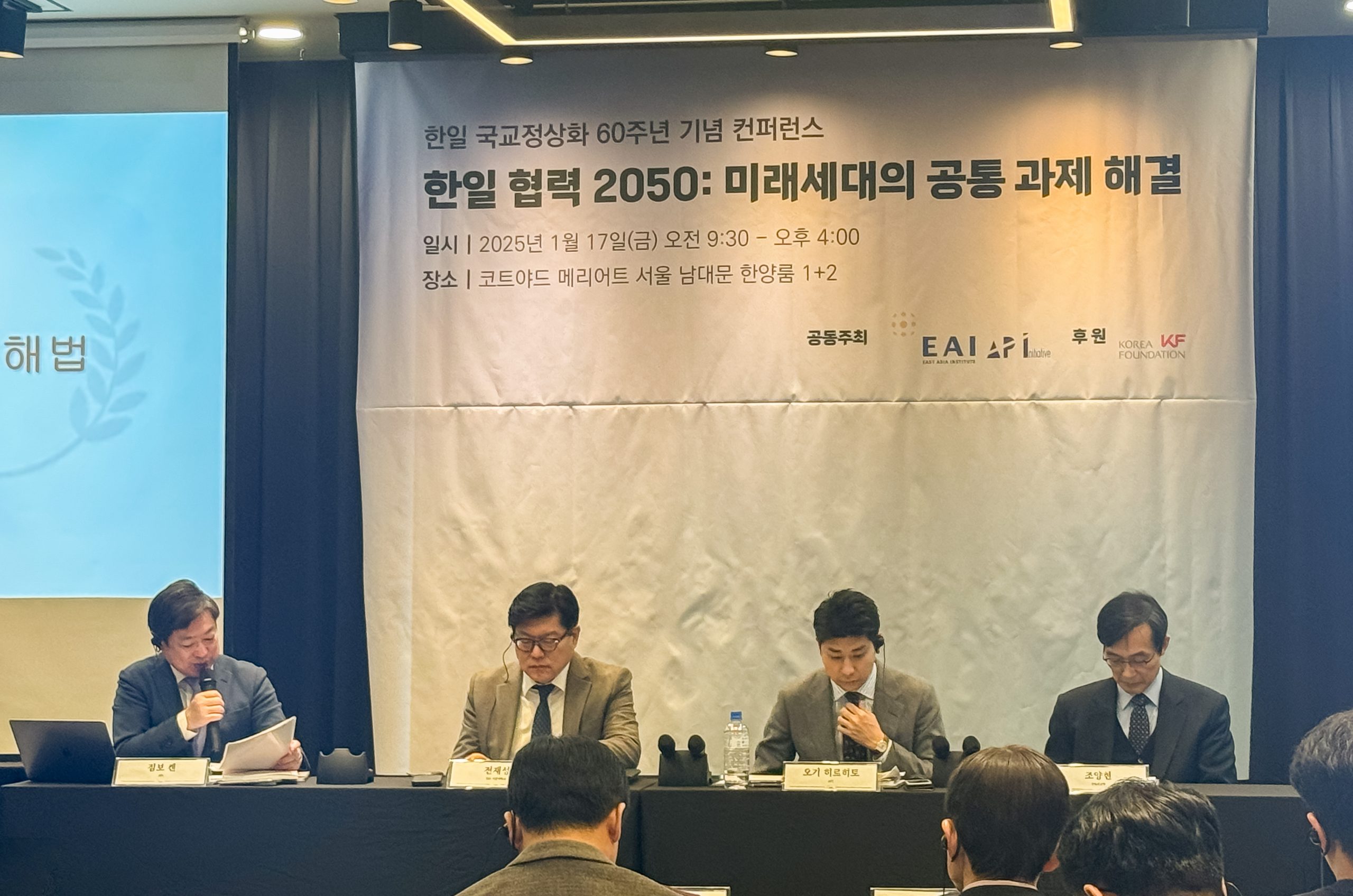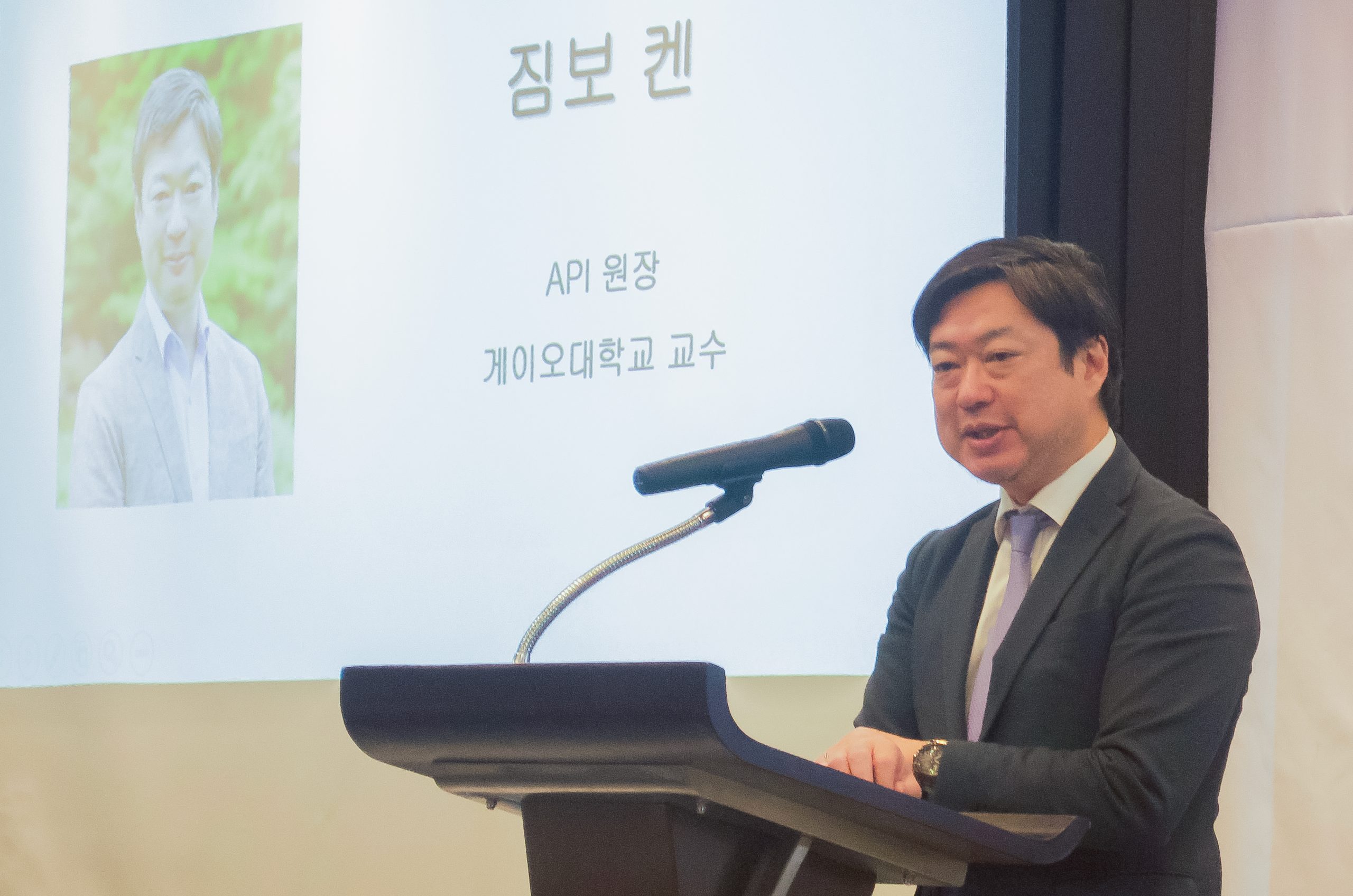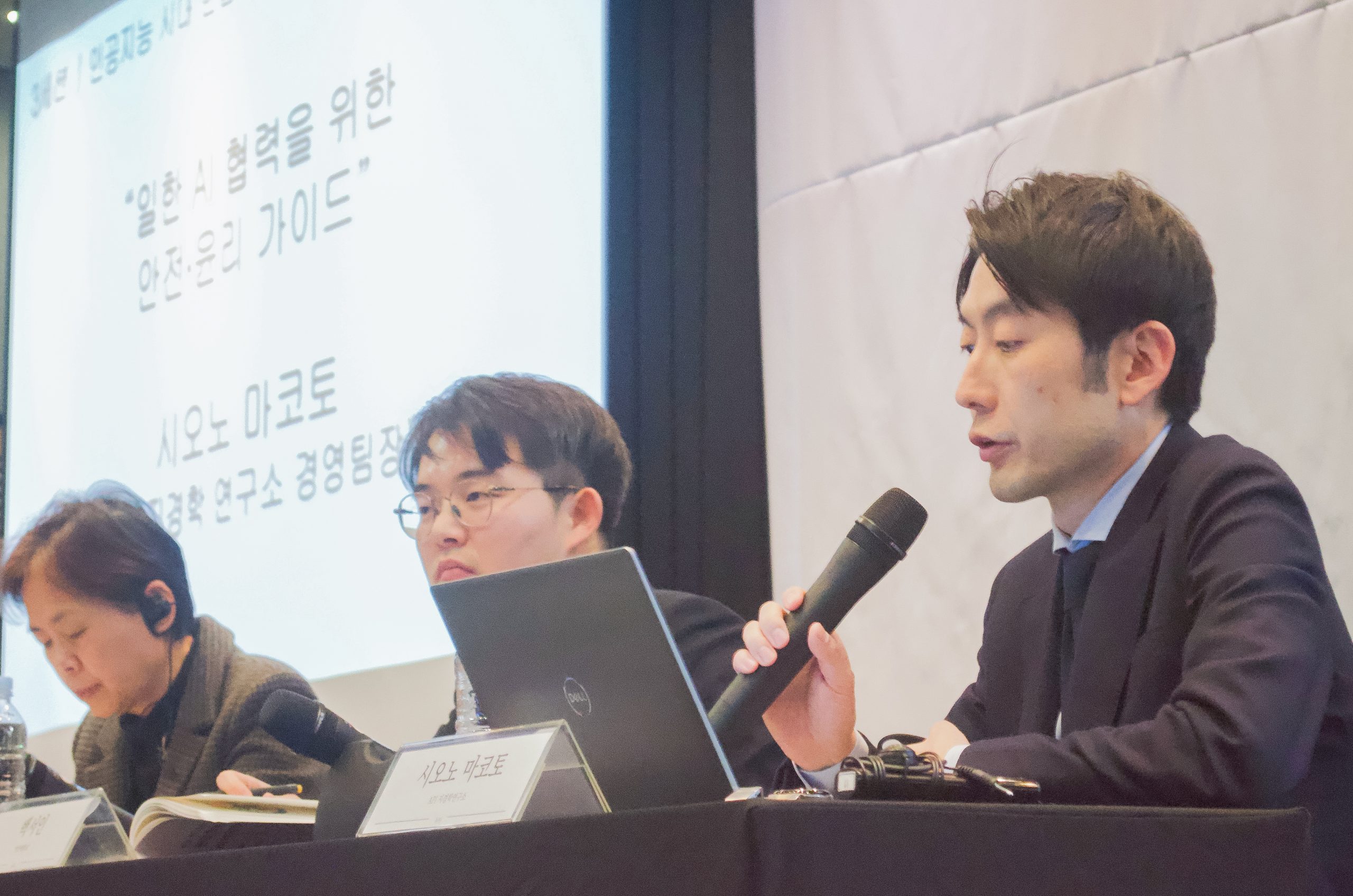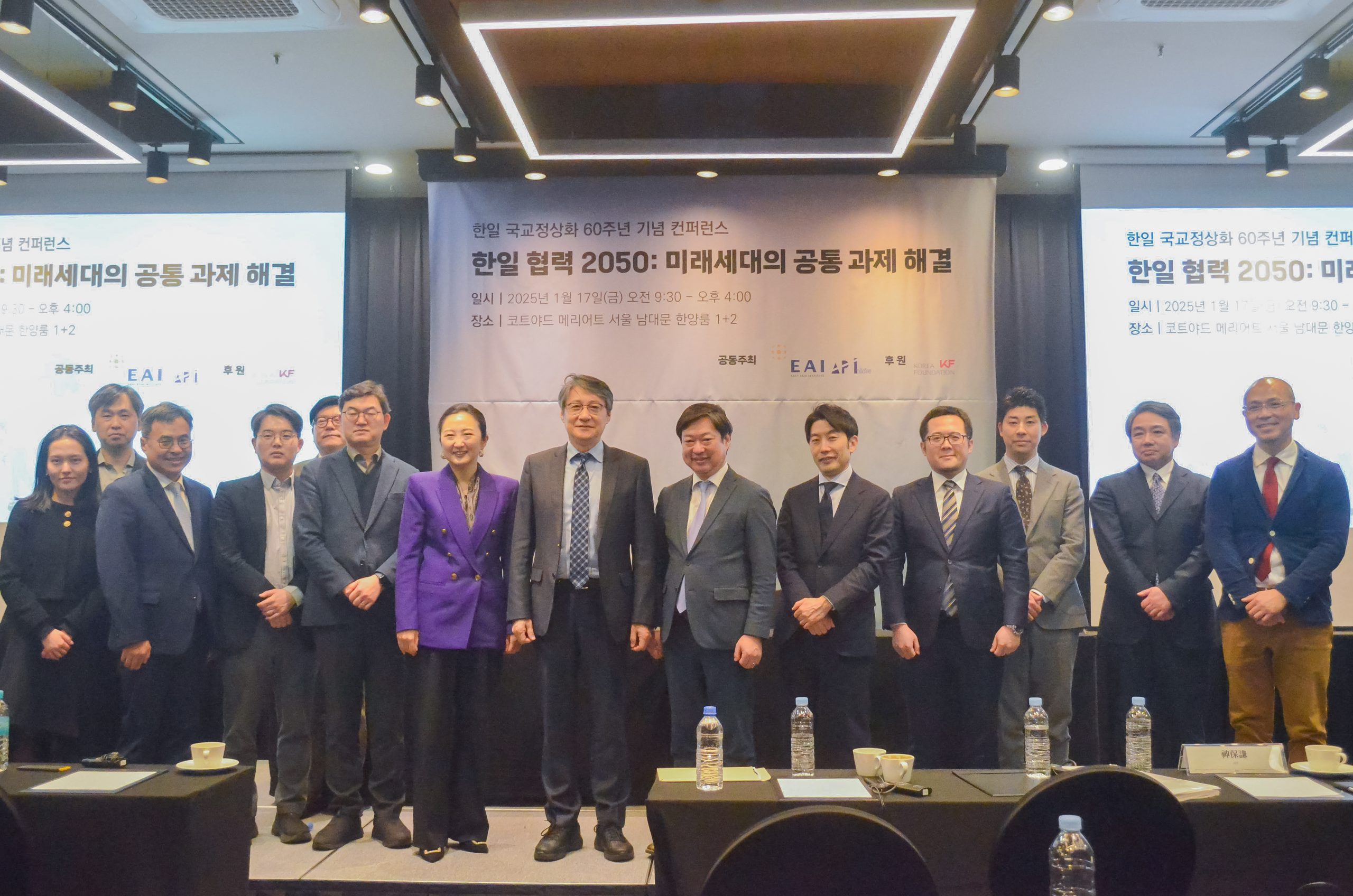On January 17, 2024, the final symposium of the “Japan-Korea 2050 Project,” co-hosted by the Asia Pacific Initiative (API) and the East Asia Institute (EAI) of South Korea, was held in Seoul, South Korea.
This project aimed to explore opportunities for cooperation between Japan and South Korea in addressing common challenges with a view toward 2050. The discussions covered a wide range of topics, including security, economics, advanced technologies, climate change, and demographic issues. Experts, policymakers, and academics gathered to engage in dynamic discussions on future-oriented cooperative strategies.
During the opening ceremony, Ho-young JOO (President of Korea-Japan Parliamentarians’ Union) delivered a congratulatory address. Key sessions and discussions are summarized below:



1. Military and Security
Professor Chaesung CHUN (Seoul National University) analyzed the strategic competition and potential long-term shifts in alliances within Northeast Asia’s security environment. From Japan, Hiroto OGI (Senior Research Fellow, API) proposed a “fundamental cooperation” framework to address geopolitical imbalances between Japan and South Korea.
2. Economic Security
Professor Takashi TERADA (Doshisha University) emphasized the importance of institutionalizing trilateral ministerial dialogues on diplomacy, economy, and finance (“3+3”) to address issues related to trade and supply chains. Meanwhile, Professor Junghwan LEE (Seoul National University) discussed responses to economic fragmentation and the potential for joint development of emerging technologies.
3. Advanced Technology and AI
Professor Seoin BAEK (Hanyang University) shared insights into the innovations driven by the interaction between science and AI. Makoto SHIONO (Management Director & Group Head of Emerging Tech of Institute of Geoeconomics, API) proposed creating Japan-Korea cooperative guidelines to ensure the ethical use of AI.
4. Climate Change and Energy
Daisuke HARADA (Project Director of Research and Analysis Department, JOGMEC) presented Japan’s decarbonization efforts and the potential of hydrogen energy. Professor Eunjung LIM (Kongju National University) suggested realistic cooperative strategies to achieve carbon neutrality.
5. Demographics and Culture
Professor Joon HAN (Yonsei University) and Yoshiyuki SAGARA (Senior Research Fellow, API) reported on the challenges of population decline and the possibilities of leveraging AI for building new societal frameworks. Discussions highlighted the role of youth as a key driver of Japan-Korea cooperation.
Future Outlook
In his closing remarks, Ken JIMBO (President, API) stated that “Japan-Korea cooperation should become an essential framework for contributing to the resolution of global challenges beyond the region.” Yul SOHN (President, EAI), emphasized the necessity of building a sustainable cooperative system.
This symposium served as a significant platform to share the outcomes of the Japan-Korea 2050 Project and marked a critical step toward policy recommendations. A detailed report summarizing the sessions and policy proposals will be published in the near future.

 APIニュースレター 登録
APIニュースレター 登録